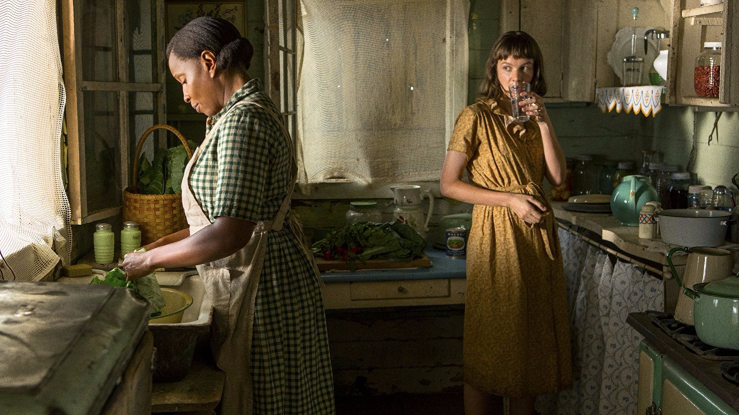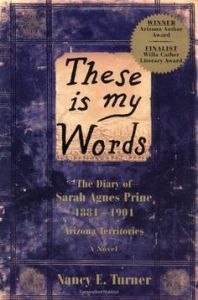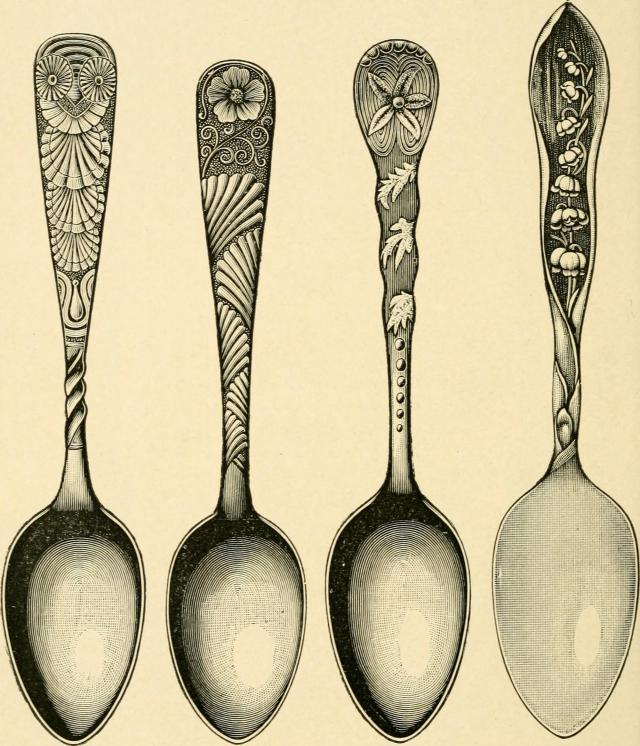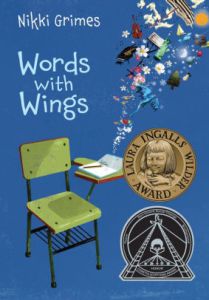I first came across the work of Dee Rees a few years ago, during a search for good quality LGBTQ+ cinema to add to my viewing list – ‘Pariah’ is, to this day, one of the best lesbian films I have ever seen. It was to my complete joy, then, that I heard her name bandied around film circles once more earlier this year, this time in the context of a potentially awards-worthy Netflix original, ‘Mudbound’ (2017). Regardless of that ongoing debate, and the overall impact of Netflix on the prestige of cinema, Rees’ work contains a depth of character and attention to detail that is befitting of a director with much more experience than her current three feature films; her introduction into a more mainstream circuit can only result in a great gain for the industry in the future.
 Mudbound (2017). Photo by Steve Dietl. © Netflix All Rights Reserved
Mudbound (2017). Photo by Steve Dietl. © Netflix All Rights Reserved
THE STARTING POINT: ‘PARIAH’ AND QUEER BLACK YOUTH
Though ‘Mudbound’ may be the film on many people’s lips at the moment, it is an earlier work of Rees’ that I would point to as the ideal starting point for a look into her skills – ‘Pariah’ (2011) is the vibrant exploration of identity, love, and sexuality that the world truly needs right now. As a lesbian film, it provides an image not only for the severely underrepresented black LGBTQ+ community, but also a celebration of the butch woman who so rarely sees a provoking exploration of female masculinity on screen. All too often, queer cinema will stereotype or altogether ignore these women, regardless of the fact that butch lesbians have been at the heart of this community for decades. ‘Pariah’ looks at what it feels like to not only be rejected for who you love, but for how you choose to present yourself to the outside world in correlation with this love. Though the piece features many a scene of realistic angst, the youth of the protagonist contains an optimistic slant. This narrative choice fortunately turns what could have been a miserable film into one of curiosity, as main character Alike embraces her identity.
 Adepero Oduye in Pariah (2011). © Focus Features LLC All Rights Reserved
Adepero Oduye in Pariah (2011). © Focus Features LLC All Rights Reserved
TO THE SMALL SCREEN: ‘BESSIE’ AND THE MUSICAL BIOPIC
Of all of Dee Rees’ films, ‘Bessie’ (2015) is most likely the one you haven’t heard of; critically, it’s the least well received of her work, and as a slightly cheesy TV biopic, it falls down the ranks of respectability from the offset. Whether this is deserved or not, however, is another question entirely. Whilst ‘Bessie’ may not be the radical first feature that ‘Pariah’ was, or hold the same rich story of ‘Mudbound’, that does not mean that the film is not worth a look at all. Telling the story of early blues singer Bessie Smith, ‘Bessie’ for the most part falls under standard musical biopic fare: melodramatic personal life, occasional glory, and a larger-than-life central character (played by the brilliant Queen Latifah). Although she is doubtlessly trapped by the conventions of the genre, Rees does manage to bring her own personal touch to many of the quieter scenes, and there are moments of genuine poignancy to be enjoyed as the film plods along to the typical beats of the biopic.
 Queen Latifah in Bessie (2015). Photo by Frank Masi. © Home Box Office (HBO) All Rights Reserved
Queen Latifah in Bessie (2015). Photo by Frank Masi. © Home Box Office (HBO) All Rights Reserved
HERE AND NOW: ‘MUDBOUND’ AND THE AWARDS-WORTHY NETFLIX ORIGINAL
If Rees’ previous work was on a smaller-scale, this year’s ‘Mudbound’ demonstrates the true scope of her ability as a filmmaker. Navigating the difficult race relations between two Mississippi families as WWII looms overhead, Rees truly comes into her own, never once shying away from the violence inherent in white American society’s treatment of the black populace. The film tackles various historically relevant complexities of the time, including the remnants of slavery embedded into everyday life, the economic struggles of black sharecropping farmers, and the stark contrast between the respect commanded as a soldier in the American forces, and the realities of racism when those soldiers returned home. This tense cultural backdrop is the setting for the interactions between a white family and a black family who are seemingly engaged in the same profession – but, unsurprisingly, to wildly different results. A friendship that strikes up between Jamie, a white fighter pilot, and Ronsel, a black tank sergeant, brings these tensions to a head, in a devastating illustration of the 1940s American South. Once more, the real treat here is in the small moments between characters, and the beauty of the relationships that Rees creates. There has been a lot of discussion about ‘Mudbound’ becoming the first Netflix original to garner an Oscar nomination, and though we’re still a way away from the big ceremony itself, I can’t imagine a better or more currently relevant film to earn the title.
 Mary J. Blige and Carey Mulligan in Mudbound (2017). Photo by Steve Dietl. © Netflix All Rights Reserved
Mary J. Blige and Carey Mulligan in Mudbound (2017). Photo by Steve Dietl. © Netflix All Rights Reserved
SHORTS AND OTHER WORK
In addition to her feature length work, Rees also has a number of short films and a documentary under her belt. Of these, I’ve unfortunately only been able to get hold of one, the 2009 short film ‘Colonial Gods’. This drama details a multi-faceted friendship between a Somali man and his Nigerian landlord, as they engage in a collective battle against the gentrification of their neighbourhood. It’s a fairly basic piece that highlights a very important issue, and Rees’ strength yet again lies in her ability to present complicated societal problems in a nuanced and sensitive manner. Ultimately, however, ‘Colonial Gods’ largely falls flat in its execution, with a muddled plot and a 29-minute runtime that doesn’t give its characters long enough to develop accordingly with the complexities of their struggles. That said, Rees’ work is varied and interesting enough that I’d recommend catching whatever you possibly can of her filmography. Her other two shorts consist of Pariah (2007), the original short which the 2011 feature was based off, and Orange Bow (2005), a fourteen minute long comic drama concerning the journey of a Brooklyn teenager to a neighbourhood birthday party. In addition to this, Rees directed a documentary, Eventual Salvation (2008), regarding the aftermath of the Liberian civil war.
FUTURE PROJECTS
Rees without a doubt hit a new career high with ‘Mudbound’, and she doesn’t look to be slowing down in the slightest. Her next project sees her working once more with Carey Mulligan, in a biopic that tackles the life of renowned feminist journalist Gloria Steinem. Though biographical film can often lead to tedium, the subject matter here very much plays to Rees’ strengths, and I’m incredibly excited to see where she can take such a large and multi-faceted discussion as mainstream feminism, particularly considering the divisive nature of many of Steinem’s beliefs. The film is currently in pre-production, and should mark another foray into Oscar territory for Rees if all goes well – in any case, she certainly has a talent worth awarding.
If anyone has any information as to where I can watch/purchase Pariah (2007), Orange Bow (2005) and/or Eventual Salvation (2008) in the UK, please let me know! For American readers, Eventual Salvation does appear to be available on US Netflix – if anyone has seen it, I’d really love to know your thoughts.
Share this:





